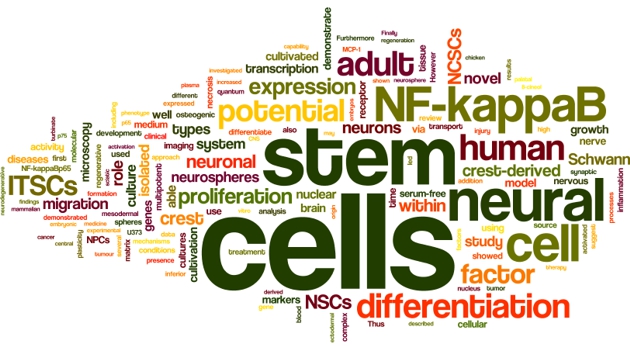
PhD students
Currently, we are looking for highly motivated, self-funded PhD students, interested in stem cells and inflammation.
In particular, we currently offer the following PhD projects:
Mechanisms of Cancer Stem Cell Survival, Metastasis Formation and Immune Evasion in Cancer
For details of the projects and to apply please visit the dedicated Findaphd-pages (external links open in new windows).
Postdoctoral positions
Currently, there are no postdoc positions open. However, if you are interested in our research and would like to join our team as a postdoc or PhD student, please contact us to discuss an appropriate fellowship scheme.
MSc / BSc students
Positions for BSc and MSc students are always available. The list in the Student projects-section should give you a brief impression on the research that is carried out by our MSc and BSc students.
If you are interested in an MSc or BSc project in our lab, please contact us.
Dr Darius Widera
School of Pharmacy
University of Reading
Hopkins Building
Room 108
Reading
RG6 6UB
United Kingdom
Tel: +44(0) 118 378 7053
Email: d.widera[at]reading.ac.uk
General overview
Our research is focused on adult (somatic) stem cells and the regulation of their fundamental biological properties including differentiation, proliferation, and migration. We are further interested in the impact of pro- and anti-inflammatory signals on neural stem cells (ancestors of nerve and glial cells), mesenchymal stem cells (progenitor of bone, fat and cartilage tissue), neural crest-derived cells (progenitor of e.g. pigment cells and bones within the head region), and cancer stem cells.
Among others, we want to address the following questions:
How do inflammation and infection influence stem cell-mediated regeneration of the brain and other tissues? Are pro- and anti-inflammatory signals beneficial or harmful to adult stem cells?
What is the ideal stem cell type for personalised regenerative medicine?
It is possible to increase the regenerative potential of autologous (belonging to the given patient), tissue-resident stem cells by manipulating the inflammatory balance?
What are the best conditions and methods to cultivate stem cells (3D vs 2D culture, biomaterials)?
For more details please visit our project-specific pages listed below.
We are an academic research laboratory in the School of Pharmacy at the University of Reading, (Reading, Berkshire, UK) interested in adult stem cell research as well as in the influence of injury and inflammation on somatic cells (injury-induced cellular reprogramming). We want to understand how inflammatory signalling pathways influence (de-) differentiation, proliferation and migration of different (stem) cell types.
In addition, we work on novel human and murine neural crest-derived stem cell populations, which are promising candidates for the development of autologous cell-based therapies in the context of regenerative medicine.

Visualisation of our pubmed-listed abstracts generated using the Wordle.net algorithm.
We further apply modern microscopy methods to address stimulus-dependent behavior of receptors (especially tumor necrosis receptor I and Toll-like receptor 4) and the resulting downstream signalling in stem cells and cancer (tumour) stem cells.
We are actively searching for industrial partners to commercialise our research and ideas. For details on our research please visit the Research and Publications sections.
Our research is currently founded by start-up funds of the University of Reading and the German Research Foundation (DFG).



